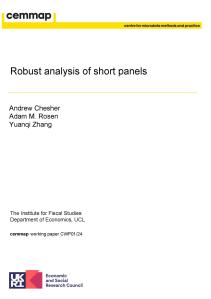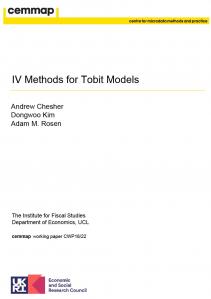Working Paper
This paper studies identification and estimation of the distribution of bidder valuations in
an incomplete model of English auctions. As in Haile and Tamer (2003) bidders are assumed
to (i) bid no more than their valuations and (ii) never let an opponent win at a price they
are willing to beat. Unlike the model studied by Haile and Tamer (2003), the requirement of
independent private values is dropped, enabling the use of these restrictions on bidder behavior
with affiliated private values, for example through the presence of auction specifi
c unobservable
heterogeneity. In addition, a semiparametric index restriction on the effect of auction-specifi
c
observable heterogeneity is incorporated, which, relative to nonparametric methods, can be help-
ful in alleviating the curse of dimensionality with a moderate or large number of covariates. The
identification analysis employs results from Chesher and Rosen (2017) to characterize identified
sets for bidder valuation distributions and functionals thereof.







































